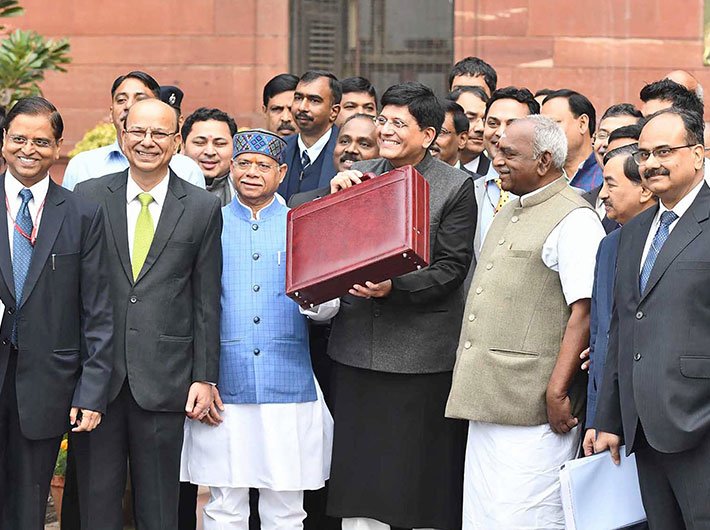An official who worked closely with Narendra Modi during his stint as the chief minister of Gujarat told me an anecdote to explain his style of working. Just before the 2007 state assembly elections, Modi had found himself pitted against a strong lobby of Patel farmers and the RSS-backed Bharatiya Kisan Sangh.
What got the goat of the affluent Patidars was Modi’s tough decision of separating power feeders for agriculture and making farmers pay for it. Earlier, having a common feeder for agriculture and domestic use had made it difficult to gauge how much electricity was consumed solely for agricultural purposes. Given the massive subsidy allotted for agriculture, domestic power consumption was also reckoned as agricultural consumption.
The feeder separation made life difficult for farmers who had to pay user charges. Non-payment of dues led to hundreds of arrests, mostly of Patidars who were provoked by a group within the BJP to revolt against Modi as he had replaced Keshubhai Patel in the state. The official had advised Modi to hold back on the move till the elections to avoid any “adverse impact” on the outcome. Modi’s response was: “Don't bother about the elections, as I will handle it. Do what is good for the people.”
Modi went on to win the 2007 elections despite a determined attempt to stoke a farmer rebellion against him. Gujarat also became the first state to successfully implement power sector reforms and ensure uninterrupted electricity supply to common people.
If one examines the way Modi ran the Gujarat government, it will be apparent that his style of functioning remains unchanged as the prime minister. He is arguably the only politician who had a long, uninterrupted stint of 18 years as a chief minister and prime minister considered together. The 2019 interim budget is a clear example of a Modi who plans for a decade, even when he is set to face an uncertainty three months down the line in the general elections.
Look at the manner in which finance minister Piyush Goyal outlined the country’s financial health till 2030. For those keen to hear about the immediate future, he assured them that within two years, income tax filings will be scrutinised through a technological interface with no human intervention. Of course, Goyal’s words were music to the ears of a large section of genuine taxpayers in business and industry. If such a situation does materialise, it will put an effective end to corruption in one of the most corrupt arms of the government.
Similarly, the government’s decision to provide Rs 6,000 annually to farmers who own landholdings less than 2 hectares will cover nearly 90 percent of the farming community in the country. This amount is not meant for sustenance, but is aimed at encouraging farmers to inculcate banking habits. At the same time, the entire exercise would also update and digitise land records across the country and carry out an accurate census of land-owning farmers in India. As of now, there are many gaps in digitisation of land records and accuracy about the land-ownership pattern in the community.
Moreover, the government’s pension scheme for workers of the unorganised sector, instead of being a freebie, is clearly an attempt to incentivise future planning among the most vulnerable strata of society. Under this scheme, unorganised sector workers, who constitute nearly 94 percent of the workforce, will be able to avail a pension of Rs 3,000 per month after 60 years of age by making a nominal contribution. The scheme is intended to encourage workers of the unorganised sector to have a stake in their future planning. Far from promising a freebie, this government initiative aims to nudge the working class into becoming an aspirational class that realises its dreams and secures its future.
A close scrutiny of Modi’s governance style in both Gandhinagar and Delhi will reveal a pattern: through his interventions, he has been assiduously cultivating a neo-middle class, an amorphous social segment that has just pulled itself out of the below-poverty-line mark and is struggling hard to realise an urban dream. During his Gandhinagar stint, he had promised this class housing facilities and cleaner urban spaces across the state. And there is little doubt that Modi held an overweening influence on this social segment, which forms a sizeable section of the vote bank.
In the past five years, the prime minister has been cultivating this class across the country by launching a vigorous cleanliness drive and promoting healthy competition among cities to rise up to people’s expectations. At the same time, he has been providing a push to this class to come out of ‘ghettoisation’ and dream for a brighter future. His story of becoming a prime minister from a tea seller is inspiring for this class to look at the future with hope, not despondency.
A look at the summary of Goyal’s budget speech would explain how the grammar of politics has been changing during the past five years. He talks about building an India that will have a surfeit of clean and renewable energy, electric cars and a transparent and equitable society. This stand is a sharp contrast to the pro-poor rhetoric that finance ministers have deployed in the past while delivering a pre-election budget.
Modi clearly holds out a promise, while his adversaries are busy drawing a regressive and sad picture of India. The opposition is emulating exactly the model that failed in Gujarat. It is unlikely to succeed at the national level as well.
[This comment has appeared on FirstPost.com]

